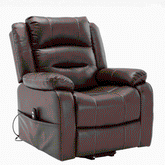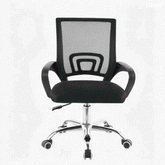Why Home Automation is the Key to Energy Efficiency in South African Homes
The Rise of Modern Living: How Smart Housing Is Changing the Game
The Demand for Smart Housing Solutions in South Africa
South Africa is experiencing a growing demand for smart housing solutions. More homeowners want to make their living spaces efficient and comfortable. This trend is driven by the need for better energy management and increased home security.

Smart homes offer convenience that traditional homes can't match. With a smartphone, people can control various aspects of their home from anywhere. This level of control is appealing in busy urban areas where time is precious.
The COVID-19 pandemic has also increased interest in smart homes. As people spend more time at home, they want spaces that can adapt to their needs. Smart housing provides flexibility to create multi-functional living areas.
Young professionals and tech-savvy families are leading this shift towards smart housing. They see it as an investment in their future and a way to improve their quality of life. The demand is expected to grow as more people realize the benefits of smart home technology.
Key Features of Modern Smart Housing
Modern smart homes in South Africa come with a range of innovative features. These technologies make daily life easier and more efficient. Here are some key features of smart housing:
- Home automation systems
- Energy management tools
- Smart security systems
- Voice-controlled assistants
- Connected appliances
Home automation allows users to control lights, temperature, and entertainment systems remotely. This can be done through a smartphone app or voice commands. Energy management tools help reduce electricity bills by optimizing power usage.
Smart security systems provide peace of mind with features like video doorbells and motion sensors. These can be monitored from anywhere, adding an extra layer of protection to homes.
Voice-controlled assistants, like Google Home or Amazon Alexa, make it easy to manage various functions. They can play music, set reminders, or control other smart devices with simple voice commands.
Connected appliances streamline household tasks. For example, smart fridges can create shopping lists, while smart ovens can be preheated remotely. These features save time and make daily routines more efficient.
The Economic Impact of Smart Housing on the South African Market
Boosting Property Values with High-Tech Interiors
Smart housing features are having a positive impact on property values in South Africa. Homes with modern, tech-enabled interiors are commanding higher prices in the market. This trend is particularly evident in urban areas and new developments.

Buyers are willing to pay more for homes that offer enhanced convenience and efficiency. Features like automated lighting, climate control, and security systems are seen as valuable assets. They not only improve quality of life but can also reduce long-term operating costs.
Real estate agents are highlighting smart features in their listings. Properties with smart technology often sell faster than traditional homes. This creates a competitive advantage in the housing market.
Developers are also taking note of this trend. Many new construction projects now include smart home technology as standard. This is helping to drive wider adoption of smart housing solutions across the country.
Smart Housing and Its Role in Sustainable Development
Smart housing plays a crucial role in South Africa's journey towards sustainable development. These homes are designed to be more energy-efficient and environmentally friendly. They help reduce the overall carbon footprint of residential areas.
Smart energy management systems optimize power usage throughout the home. They can integrate with renewable energy sources like solar panels. This reduces reliance on the national grid and lowers electricity bills for homeowners.
Water conservation is another key benefit of smart housing. Smart irrigation systems and leak detection help preserve this precious resource. This is particularly important in drought-prone areas of South Africa.
Many smart homes also use sustainable materials in their construction. This includes recycled materials and energy-efficient insulation. These choices contribute to a more eco-friendly housing sector overall.
By promoting efficient resource use, smart housing aligns with South Africa's goals for sustainable urban development. It offers a way to improve living standards while minimizing environmental impact.
From Vision to Reality: Implementing Smart Housing in South Africa
Step-by-Step Guide to Upgrading Your Home
Upgrading to a smart home doesn't have to be a daunting task. Here's a simple guide to get started:

- Assess your needs: Decide which smart features would benefit you most.
- Set a budget: Smart home upgrades can range from affordable to high-end.
- Start with basics: Begin with simple devices like smart plugs or bulbs.
- Choose a hub: Select a central system to control all your smart devices.
- Gradually add features: Expand your smart home setup over time.
- Ensure compatibility: Check that new devices work with your existing system.
- Prioritize security: Invest in strong passwords and regular software updates.
Begin with areas that will have the most impact on your daily life. For many, this means smart lighting or a smart thermostat. These offer immediate benefits in terms of comfort and energy savings.
Consider professional installation for more complex systems like whole-home automation. This ensures everything works correctly and safely. It can also save time and frustration in the long run.
Remember that creating a smart home is a journey, not a destination. Start small and add features as you become more comfortable with the technology. This approach allows you to learn and adapt as you go.
The Future of Smart Housing: What's Next for South African Homeowners
The future of smart housing in South Africa looks promising. We can expect to see more integration of artificial intelligence in home systems. This will make homes even more intuitive and responsive to our needs.
5G technology will enable faster, more reliable connections for smart home devices. This will support more devices and smoother operation. It will also open up new possibilities for remote home management.
Health monitoring systems may become more common in smart homes. These could track air quality and alert residents to potential health hazards. Some may even integrate with personal health devices for comprehensive wellness monitoring.
Sustainability will continue to be a key focus in smart housing development. We may see more homes that are not just energy-efficient, but energy-positive. These homes would generate more power than they consume.
Virtual and augmented reality could change how we interact with our homes. They might be used for everything from interior design planning to remote home repairs.
As technology advances, smart homes will become more affordable and accessible. This will help drive wider adoption across South Africa. The result will be a housing market that's more efficient, comfortable, and sustainable for all.




